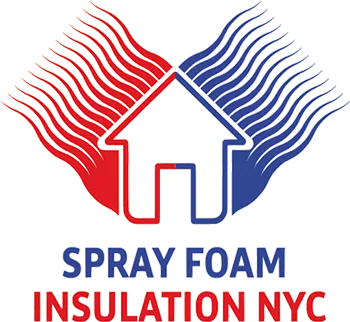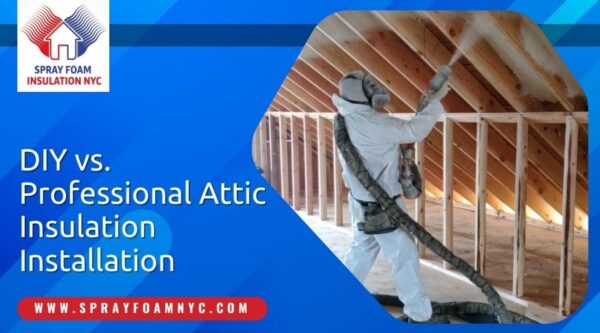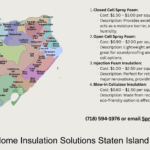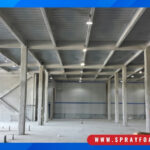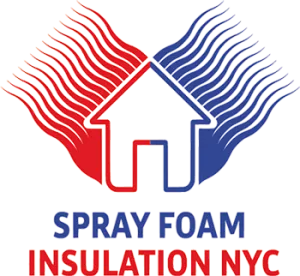Every homeowner understands the pivotal role that insulating an attic plays in maintaining a comfortable and energy-efficient household. The pressing question: should you embrace a hands-on DIY attic insulation method, or should you invest in professional attic insulation? Dive in as we unfurl the curtains behind each option’s allure and pitfalls.
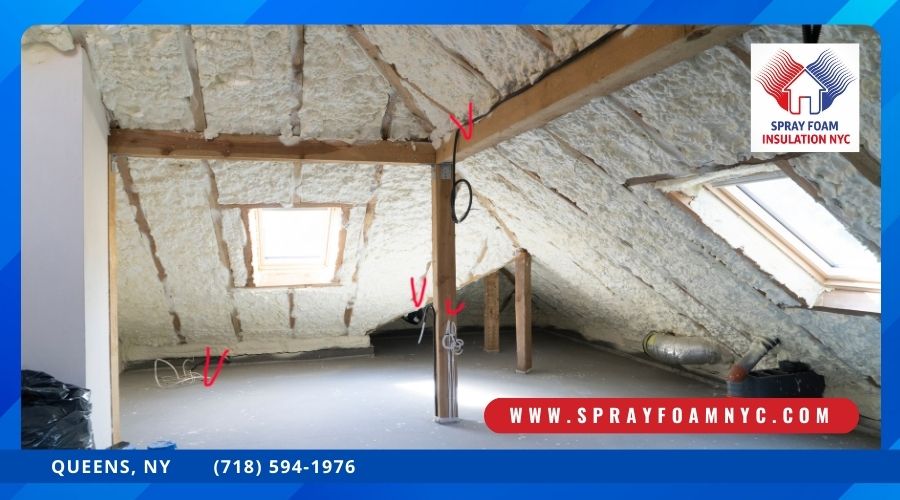
Understanding Attic Insulation
At the heart of every cozy home, attic insulation stands tall as the unsung hero. Its fundamental role? Acting as a steadfast barrier, mitigating heat transfer, and ensuring your living spaces maintain consistent, pleasant temperatures. This function isn’t just about comfort; it translates to tangible energy savings. But before you rush to insulate, let’s unravel the diverse materials:
Fiberglass Insulation: A Classic Choice with Modern Benefits
Fiberglass insulation has stood the test of time as a reliable and cost-effective option for attic insulation. Composed of fine glass fibers, it boasts excellent thermal resistance and is known for its ability to trap pockets of air, hindering heat transfer. Its affordability and versatility make it a popular choice among homeowners. Additionally, fiberglass insulation is non-combustible, contributing to fire safety within the home.
Mineral Wool Insulation: Harnessing Nature’s Strength
Mineral wool insulation, often made from volcanic rock or slag, is prized for its exceptional fire resistance and sound absorption properties. Its dense and fibrous composition allows it to withstand high temperatures, making it an ideal choice for attic spaces where fire safety is a priority. Mineral wool insulation effectively slows the spread of flames and provides valuable time for occupants to evacuate in case of a fire.
Spray Foam Insulation: Versatile and Efficient
Spray foam insulation has garnered attention for its unique application process and ability to create a seamless and airtight barrier. Its versatility allows it to expand and fill gaps, effectively sealing even irregularly shaped or hard-to-reach spaces in the attic. This comprehensive seal minimizes air leakage, thereby reducing energy wastage and enhancing overall energy efficiency.
While spray foam insulation offers remarkable benefits, its potential for off-gassing of volatile organic compounds (VOCs) and its initial cost are factors to consider. Proper installation by experienced professionals is essential to mitigate these concerns and ensure optimal performance. The choice between open-cell and closed-cell spray foam depends on factors such as budget, climate, and desired insulation attributes.
Each material shines in its realm, but today, we’ll delve deeper into the spray foam pros and cons.
DIY Attic Insulation: Pros and Cons
For the DIY enthusiasts, the prospect of donning a tool belt and embarking on an insulation project is nothing short of exhilarating. But what really sits behind this enthusiasm?
- The Allure of DIY: Imagine the pride in narrating to friends how you took the reins of your home project. The allure is undeniable.
- Cost Benefits: Shave off those labor costs, and voila! Your DIY attic insulation project might seem friendlier to your wallet.
- Potential Risks and Drawbacks: However, while spray foam is a popular choice, DIY spray foam insulation pros and cons must be weighed. A misstep in installation can plummet efficiency. And let’s not skim over the potential hazards – from personal injuries to inadvertent damage. For example, excessive exposure to fiberglass can lead to a condition known as irritant contact dermatitis, which involves skin inflammation. This is why it’s advisable to entrust such tasks to experts. Proper installation of fiberglass typically ensures its safety, as stated by HowStuffWorks.
Professional Attic Insulation Installation: Pros and Cons
According to an FSEC Research report, insulation typically takes the form of a spray foam product, which not only insulates but also seals air, resulting in the formation of a partially conditioned area. Ensuring effective air sealing in enclosed attics is crucial for their optimal performance, necessitating post-construction assessments to identify and eliminate any potential airflow passages connecting the attic with the external environment. This simply cannot be done by a DIY-er. For those not enticed by the DIY charm, the path to professional attic insulation beckons:
- Expertise and Experience: Picture a seasoned artisan perfecting his craft. That’s the level of dexterity professionals bring, ensuring every nook is insulated.
- Efficiency and Guarantees: Spray foam attic insulation pros and cons aside, a professional touch often comes paired with enticing warranties. Peace of mind? Guaranteed.
- Cost Implications: A steeper initial cost, sure. But remember, with foam attic insulation pros and cons weighed, the benefits of optimal insulation promise enticing long-term energy savings.
Factors to Consider When Choosing Between DIY and Professional Installation
Choices, choices. How does one decide? Consider the following:
- The Size and Complexity of the Space: Is your attic reminiscent of a simple box or a labyrinth? Complex spaces often beckon for professional hands.
- Your Comfort and Experience Level: If the mere thought of insulation sends shivers down your spine, it’s perhaps time to call in the experts.
- Long-term Investment vs. Immediate Savings: Recent surveys indicate homeowners often prioritize short-term savings. But remember, investing in spray foam insulation contractors could translate to substantial future energy bill savings. According to amazingarchitecture.com, a prominent advantage of spray foam insulation lies in its capacity to generate noteworthy reductions in energy consumption. By thwarting the escape of air and curbing the transmission of heat, this form of insulation has the potential to significantly curtail expenses related to heating and cooling. Research has indicated that residences equipped with spray foam insulation can realize energy savings of up to 50% in comparison to conventional insulation alternatives.
Elevate Your Home’s Comfort with NYC’s Best Spray Foam Insulation
The crossroads between DIY and professional attic insulation is paved with considerations of comfort, budget, and future aspirations. Whether you’re swayed by the DIY spray foam insulation pros and cons or lean towards the undeniable expertise of a spray foam insulation company, the ultimate choice remains a deeply personal one. Whichever path you choose, ensure it aligns seamlessly with your home’s needs and your aspirations.
Ready to transform your home’s energy efficiency with premier attic insulation solutions? Dive into the world of spray foam insulation with NYC’s top experts from a leading spray foam insulation company, ensuring a cozy home and optimal energy savings.
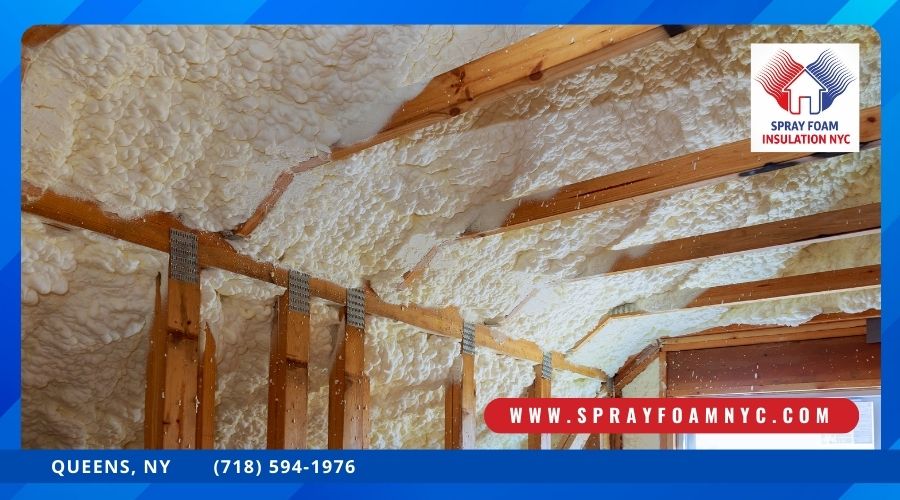
Frequently Asked Questions
Is DIY insulation always more cost-effective than professional installation?
Not always. While initial costs might be lower, potential inefficiencies could inflate long-term expenses. Inadequate DIY installation may lead to energy wastage, requiring later corrections that negate initial savings.
What’s the lifespan of attic insulation?
Depending on material and craftsmanship, insulation can last from 20 to 80 years. Regular maintenance and assessments ensure longevity and optimal performance.
Are certain insulation materials more DIY-friendly?
Certainly. Fiberglass batts, for instance, are simpler for DIY than spray foam. Their straightforward installation and minimal equipment needs suit basic construction skills.
Do professionals provide post-installation services?
Reputable contractors often do. Several highly experienced spray foam insulation contractors offer thorough inspections and proactive maintenance, sustaining long-term efficiency.
How do energy savings compare between DIY and professional insulation?
Savings depend on installation quality. Proper insulation, DIY or professional, should yield significant energy savings. However, professionals’ expertise enhances efficiency, potentially leading to greater long-term savings.
